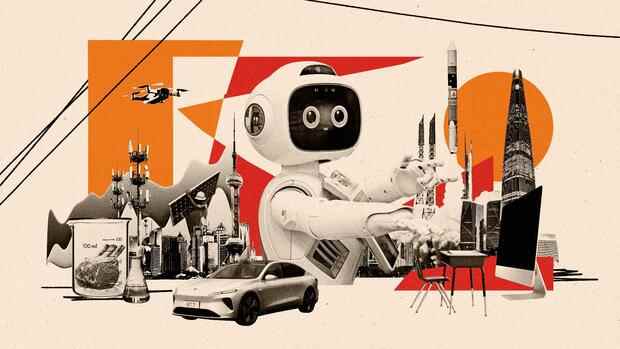In the weekly column, we alternately write about innovation and economic trends in Asia.
(Photo: Klawe Rzeczy)
Beijing In China there is an unwritten law in the investor and economic scene: in order to make a lot of money, you have to look carefully at what the Communist Party wants. In the past few years, this maxim has become even clearer: Now the standard is what state and party leader Xi Jinping, China’s most powerful leader since Mao Zedong, prescribes.
There are many examples in which this currently works. Billions of private and state capital have been pouring into the Chinese chip industry for years because Xi set out to set up its own comprehensive semiconductor production facility in the People’s Republic. New chip companies are springing up like mushrooms. Another example is the market for electric cars, which in China come under the umbrella term “New Energy Vehicles” (NEV).
There are already around 300 providers on the market – and the number is growing. Because now the giant Chinese tech companies are also getting involved. The smartphone manufacturer Xiaomi recently announced the construction of an e-car factory in Beijing. 300,000 e-cars are to be built there every year, and the first Xiaomi cars are to roll on China’s streets in 2024. It was only in March that the group announced that it would enter the market with an investment of ten billion US dollars over ten years.
The search engine operator Baidu, so to speak the “Chinese Google”, wants to build electric cars – together with the Chinese car maker Geely.
Top jobs of the day
Find the best jobs now and
be notified by email.
For its part, the e-commerce giant Alibaba has announced a joint e-car production with the state-owned car manufacturer SAIC. Even the heavily indebted real estate developer Evergrande started its own car company this year and presented its first models at the auto show in Shanghai.
The head of the Chinese electronics manufacturer Xiaomi at the presentation of their own electric car plans.
(Photo: dpa)
The companies are now apparently too enthusiastic about the will of the state leader. China has “too many” electric vehicle manufacturers and the government will encourage consolidation, Industry and Information Technology Minister Xiao Yaqing said in September. But little has happened in this direction so far.
The more Chinese companies there are on the market, the more difficult it is for German manufacturers to sell their electric cars in the People’s Republic. Their share is currently still very low. In the past few weeks, German manufacturers have advertised their e-models a lot on the Wechat messenger service, which is popular in China.
According to data from the China Passenger Car Association, however, the American manufacturer Tesla was ahead of the premium brands with its Y and 3 models in the first three quarters of this year. The best-selling electric vehicle ever was a very small and cheap city-use electric car that General Motors is building together with Chinese manufacturer Wuling Motors and SAIC.
German manufacturers were not represented at all on the list this year.
More: High-flying plans: Japan’s automakers set course for the moon
